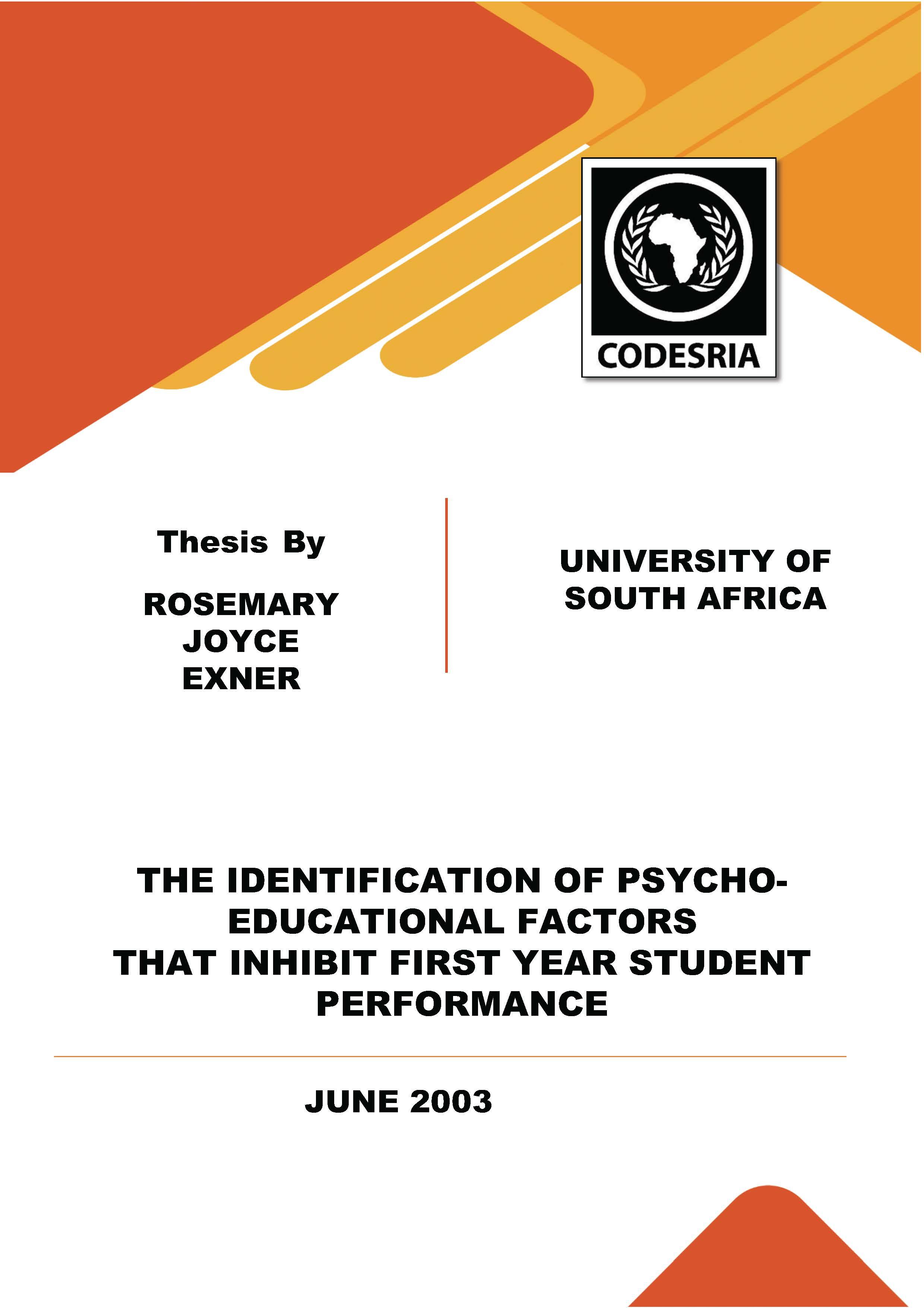The identification of psycho-educational factors that inhibit first year student performance
Mots-clés :
Psychologie de l'éducation, l'enseignement supérieur, abandon scolaire, comportement des élèves, développement des élèves, performances des élèvesSynopsis
Téléchargements
Références
Ader, H. & Mellenbergh, G. (eds.) 1999. Research methodology in the social, behavioural and life sciences. London: Sage.
AI-Hilawani, Y. & Sartawi, A. 1997. Study skills and habits of female university students. College student journal, 31(4):537-544.
Ames, C. 1992. Classrooms: goals, structures and student motivation. Journal of educational psychology, 84(3):261-271.
Archer, J. 1994. Achievement goals as a measure of motivation in university students. Contemporary educational psychology, 19:430-446.
Archer, J., Cantwell, R. & Bourke, S. 1999. Coping at university: n examination bf achievement, motivation, self-regulation, confidence and method of entry. Higher education research and development, 18(1):31-54.
Arnold, K. & King, I. (eds.) 1997. College student development: psychological, intellectual, social and moral issues. New York: Garland.
Astin, A. 1984. Student involvement: a developmental theory for higher education. Journal of college student personnel, 25:297-308.
Astin, A. 1985. Achieving educational excellence. San Francisco: Jossey-Bass.
Astin, A. 1996. Involvement in learning revisited: lessons we have learned. Journal of college student development, 37(2):123-134.
Babbie, E. & Mouton, J. 2001. The practice of social research. Cape Town: Oxford University.
Backels, K. & Wheeler, I. 2001. Faculty perception of mental health issues among college students. Journal of college student development, 42(2):173-176.
Bandura, A. 1993. Perceived self-efficacy in cognitive development and functioning. Educational psychologist, 28(2):117-148.
Bandura, A. 1997. Self-efficacy: the exercise of control. New York: Freeman.
Baxter-Magolda, M. 1987. The affective dimension of learning: faculty-student relationships that enhance intellectual development. Journal of college student personnel, 21:46-58.
Bean, J. 1980. Dropouts and turnover: the synthesis and test of a causal model of student attrition. Research in higher education, 12(2):155-187.
Belch, H., Gebel, M. & Maas, G. 2001. Relationship between student recreation complex use, academic performance, and persistence of first time freshmen. NASPA journal, 38(2):254-268.
Bintz, W. 1997. Exploring reading nightmares of middle and secondary school teachers. Journal of adolescent and adult literacy, 41(1): 13-24.
Black, T. 1999. Doing quantitative research in the social sciences: an integrated approach to research design, measurement and statistics. London: Sage.
Blimling, G. & Whitt, E. 1999. Good practice in student affairs: principles to foster student learning. San Francisco: Jossey-Bass.
Boekaerts, M. 1997. Self-regulated learning: a new concept embraced by researchers, policy-makers, educators, teachers, and students. Learning and instruction, 7(2): 161-186.
Bradley, J. & Graham, S. 2000. The effect of educational ethos and campus involvement on self-reported college outcomes for traditional and non-traditional undergraduates. Journal of college student development, 41(5):488-502.






